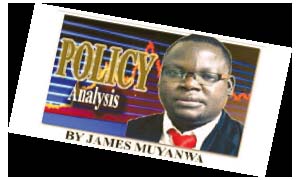BY the time you will be reading this I am expected to be somewhere in St Petersburg, Russia to cover the Second Russia-Africa Economic and Humanitarian Summit.
It is, therefore, only fair that today’s article is based on this summit which is expected to draw leaders and members of the business community and other fields from Russia and Africa.
The Russia–Africa Summit is the highest-profile and largest-scale event in Russian–African relations, aimed at bringing about a new level of mutually-beneficial partnership to meet current challenges.
The summit’s main goal is to promote efforts to strengthen comprehensive and equal cooperation between Russia and African nations across all areas of society but my main interest is in economic relations, science and technology.
The Second Russia–Africa Summit and Russia–Africa Economic and Humanitarian Forum which starts today are expected to discuss the expansion of business cooperation between Russia and African countries.
According to the organisers, the high-level meeting will be held under four main thematic pillars.
These are the ‘New Global Economy,’ ‘Integrated Security and Sovereign Development’, ‘Cooperation in Science and Technology’, and ‘The Humanitarian and Social Sphere: Working Together for a New Quality of Life’.
Under pillar ‘The New Global Economy,’ the meeting will discuss Russia- Africa business cooperation and their export potential amidst the new challenges, as well as cooperation in agriculture, energy, and logistics.
During the panel discussions of the ‘Cooperation in Science and Technology’ pillar, experts will discuss collaboration between Russia and Africa in advanced technologies.
“The key themes of the pillar are how industrial cooperation leads to technological sovereignty and advanced technologies for Africa’s sustainable development. Separate sessions will be devoted to nuclear, digital, and healthcare technologies,” partly reads a statement issued by the organisers.
During the discussions, speakers will talk about how high-tech solutions could unleash Africa’s potential and have a positive socioeconomic impact on numerous areas of society.
Commenting on the programme, advisor to the President and organizing committee executive secretary, Anton Kobyakov said African countries will obviously play an increasingly important role in the emerging architecture of a multipolar world.
“Bolstering ties between Russia and Africa in security as well as sustainable economic and humanitarian development creates the basis for the establishment of powerful, prosperous, and safe regions in the new realities,” Mr Kobyakov says.
The First Russia–Africa Summit was held on October 23-24, 2019 in Sochi marking the first time such a large-scale event had been held in the history of modern Russia.
The event has also been unprecedented in Russian– African relations.
The participants identified priority areas of economic cooperation where concrete results could be achieved in the coming years.
A closing declaration was adopted at the end of the summit, which we will look at briefly as it indicates what to expect from the second summit.
The declaration outlines goals and objectives for the future development of Russian–African cooperation across politics, security, economics, science and technology, culture and the humanitarian sphere.
Of course our interest, for obvious reasons, is in economic, science and technological sphere.
According to official data, the 2019 summit attracted more than 6,000 participants and media representatives from Russia and 104 foreign countries and territories.
Among the participants were over 1,100 representatives of international business, about 1,400 representatives of Russian business, over 1,900 members of official foreign delegations and over 300 Russian delegation members.
All 54 African states were represented with 45 of them, excluding Zambia, being represented by their heads of State.
There were 109 foreign ministers and two vice-presidents.
Further, a total of 92 agreements, contracts and memoranda of understanding were signed at the first Russia Africa Summit and Economic Forum.
The official data further shows that a total of RUB 1.004 trillion worth of agreements were signed, excluding those whose value is a trade secret.
Looking at the figures by sector, most of the documents signed were in export and foreign trade, international cooperation, high technologies, transport and logistics, extraction of mineral resources, oil and gas exploration, investments and banking activities.
A Memorandum of Understanding between the Government of the Russian Federation and the African Union was signed on basic principles of relations and cooperation.
To promote the further development of Russian– African economic and financial relations, as well as cooperation in humanitarian and social spheres the Roscongress Foundation signed 13 agreements on cooperation with various African countries.
These would further facilitate business networking and help to promote the Russian image abroad.
That highly mouthful rundown gives us an idea of what to expect from the second such summit!
The meeting will look at some of the successes and failures of these agreements and business contracts.
It is also expected to plan ahead of the next four years and identify some of the new areas to be tackled in the coming years by both parties.
Look out for the review of the second summit next week.
For comments call: WhatsApp only 0955 431442, 0977 246099, or e-mail: jmuyanwa@gmail. com.







